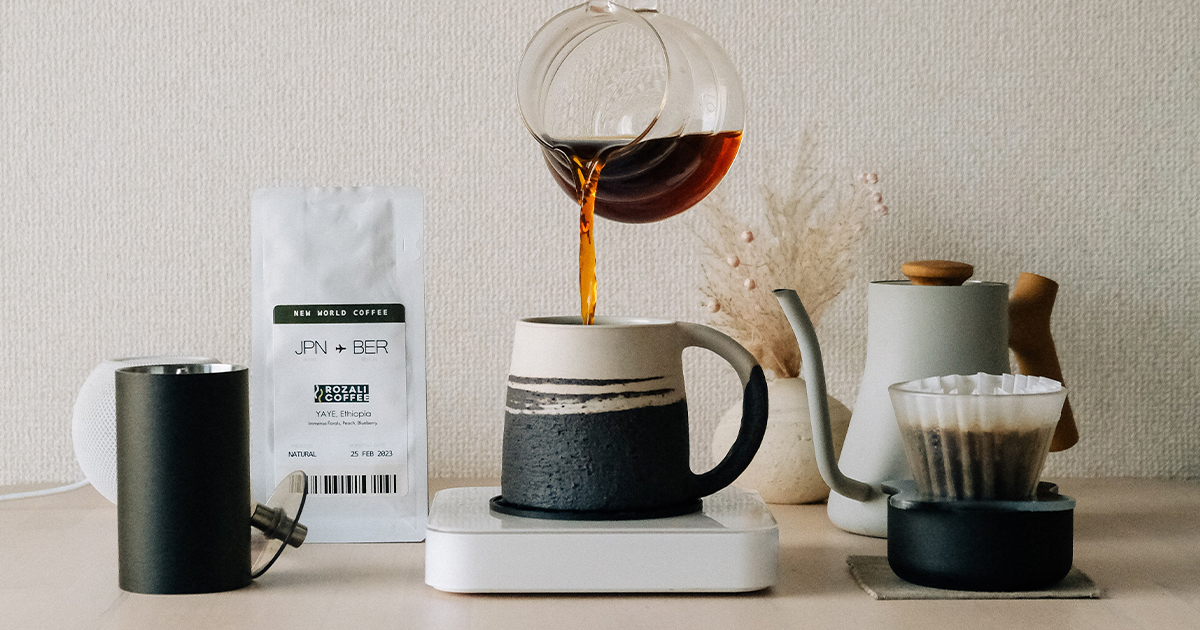Exploring the World of Caffeine

Caffeine, one of the world's most widely consumed psychoactive substances, has captivated humanity for centuries.
Whether it's the morning ritual of a steaming cup of coffee, a refreshing can of soda during a midday slump, or a boost from an energy drink before a workout, caffeine has firmly established itself in our daily lives.
In this article, we'll dig into what caffeine is, how it's used, its benefits, potential side effects, effective applications, precautions, and guidelines on daily consumption.
Please note: The information provided in this article is for educational and informational purposes only. It is not intended as a substitute for professional medical advice, diagnosis, or treatment.
What is Caffeine and How is it Used?
Caffeine is a natural stimulant found in various plants, including coffee beans, tea leaves, and cacao beans. It is also synthetically produced and added to certain beverages and medications.
Caffeine primarily works by blocking the action of adenosine, a neurotransmitter that promotes relaxation and sleepiness in the brain.
How is Caffeine Consumed?
Caffeine is consumed in various forms, including:
Coffee: Coffee is perhaps the most popular source of caffeine worldwide. It's typically brewed from roasted coffee beans.
Tea: Tea, both black and green, contains caffeine. The caffeine content varies depending on the type and preparation method.
Soft Drinks: Many carbonated soft drinks, like cola, contain caffeine, which contributes to their stimulating effects.
Energy Drinks: These beverages are specifically designed to provide an energy boost, often through high caffeine content.
Medications: Some over-the-counter and prescription medications, such as pain relievers and cold remedies, contain caffeine to enhance their effects.
What are the Benefits of Caffeine?
Caffeine offers several potential benefits when consumed in moderation:
Increased Alertness: Caffeine can help improve concentration and focus, making it a useful tool for staying awake during periods of fatigue.
Enhanced Physical Performance: Caffeine can boost endurance and reduce perceived effort during physical activities, making it popular among athletes.
Mood Enhancement: Some people experience improved mood and reduced risk of depression when consuming caffeine.
Reduced Risk of Certain Diseases: Some studies suggest that moderate caffeine consumption may be associated with a lower risk of certain diseases, such as Parkinson's disease and type 2 diabetes.
What are the Side Effects of Caffeine?
While caffeine has its advantages, it's essential to be aware of its potential side effects and take precautions:
Insomnia: Excessive caffeine intake, especially in the afternoon or evening, can disrupt sleep patterns and lead to insomnia.
Jitters and Anxiety: High doses of caffeine may cause restlessness, anxiety, and nervousness.
Digestive Issues: Caffeine can lead to stomach upset, acid reflux, or gastrointestinal discomfort in some individuals.
Addiction: Regular and excessive caffeine consumption can lead to dependence, characterized by withdrawal symptoms like headaches, fatigue, and irritability when caffeine intake is reduced.
Heart Health: While moderate caffeine consumption is generally considered safe for most people, excessive caffeine intake may lead to rapid heart rate, palpitations, and increased blood pressure.
Can Caffeine Help Prevent Disease?
Emerging research suggests that moderate caffeine consumption may offer some health benefits, including a potential reduction in the risk of certain diseases.
For instance, studies have shown that caffeine intake may be associated with a decreased risk of Parkinson's disease, Alzheimer's disease, and type 2 diabetes.
However, it's crucial to remember that individual responses to caffeine can vary, and excessive consumption may lead to adverse effects.
As with any health-related information, it's advisable to consult with a healthcare professional for personalized advice and recommendations.
Can You Avoid the Side Effects of Caffeine?
To make the most of caffeine while minimizing its potential drawbacks:
Monitor Intake: Be aware of your caffeine consumption from all sources (coffee, tea, soft drinks, energy drinks, and medications).
Stay Hydrated: Caffeine is a diuretic, so drink plenty of water to stay hydrated.
Time It Right: Avoid consuming caffeine too close to bedtime to ensure a good night's sleep.
Individual Tolerance: Recognize that caffeine tolerance varies from person to person, so adjust your intake accordingly.
Pregnancy and Health Conditions: Pregnant individuals and those with certain medical conditions should consult with healthcare professionals about their caffeine consumption.
How Much Caffeine Can Be Safely Consumed Daily? auremar, Adobe Stock
auremar, Adobe Stock
While there's no one-size-fits-all recommendation, many health experts suggest that moderate caffeine consumption, around 200-400 milligrams per day (equivalent to 1-2 cups of brewed coffee), is generally considered safe for most healthy adults.
However, individual tolerance may vary, so it's crucial to pay attention to how your body responds to caffeine.
Final Thoughts
Caffeine, when used thoughtfully and in moderation, can be a valuable ally in enhancing alertness, performance, and mood.
However, like any substance, it should be consumed mindfully, and individual tolerance should be respected. Be sure to strike a balance that works for you, keeping both its benefits and potential side effects in mind as you savor that next cup of coffee or tea.








